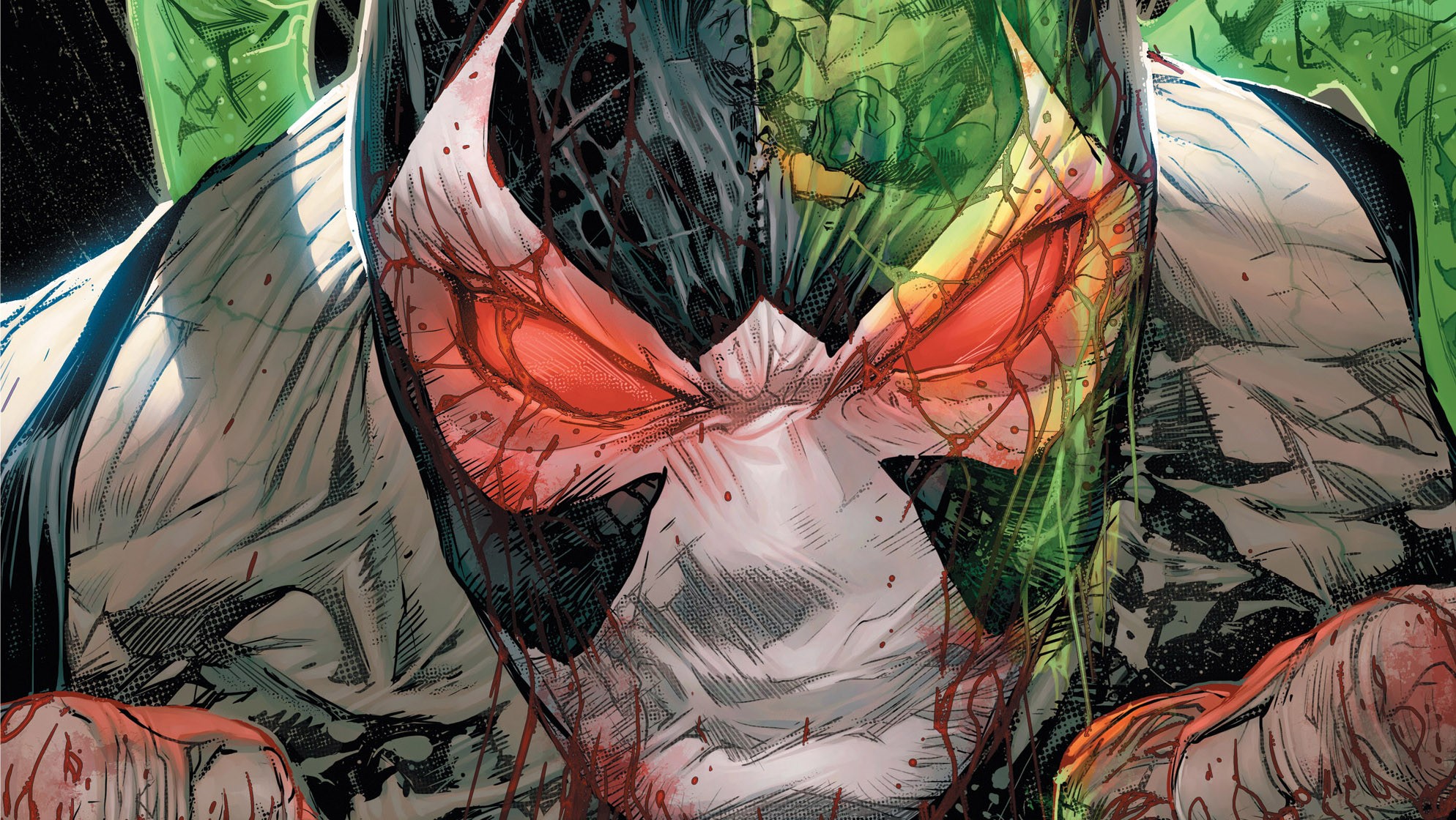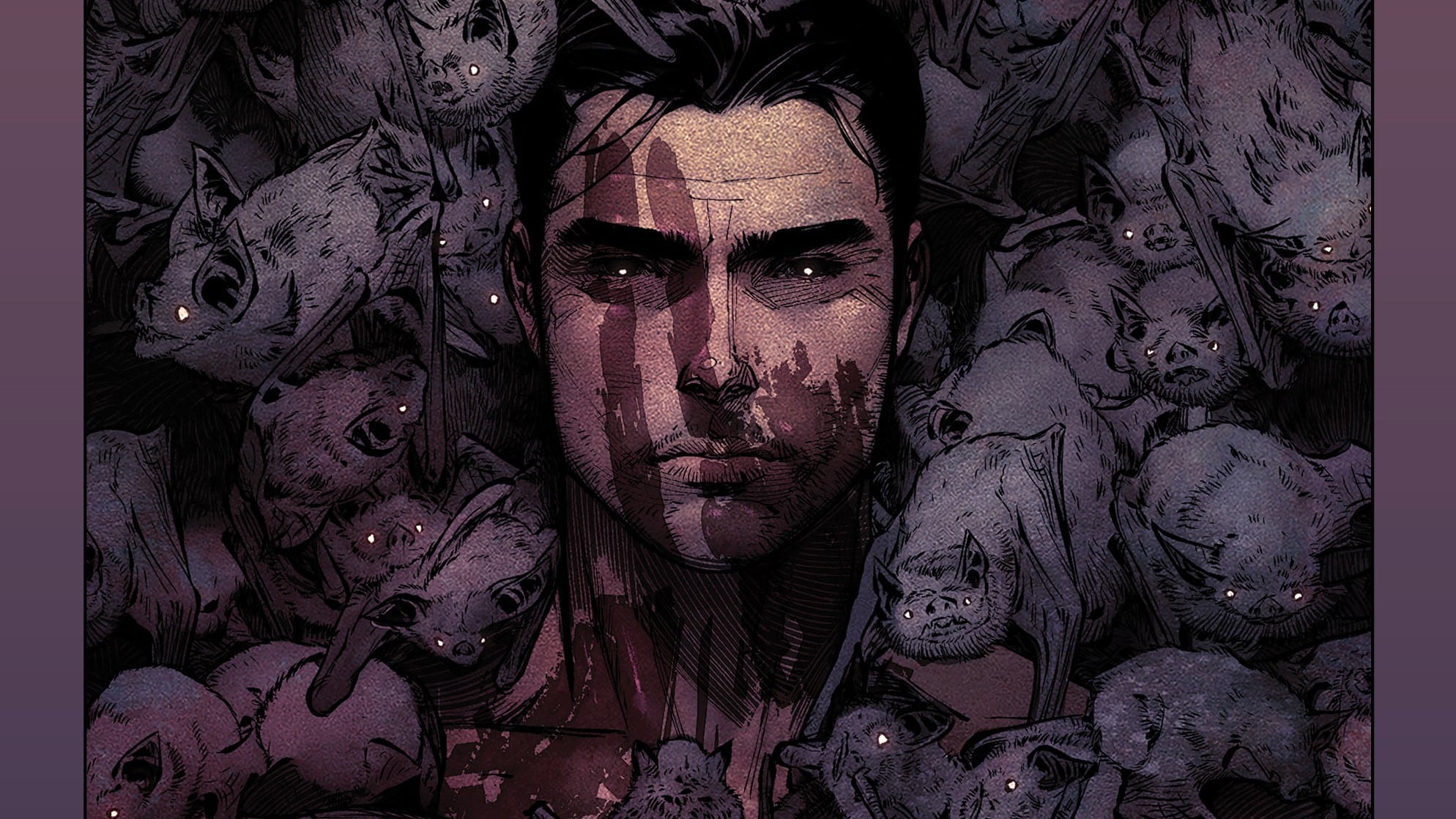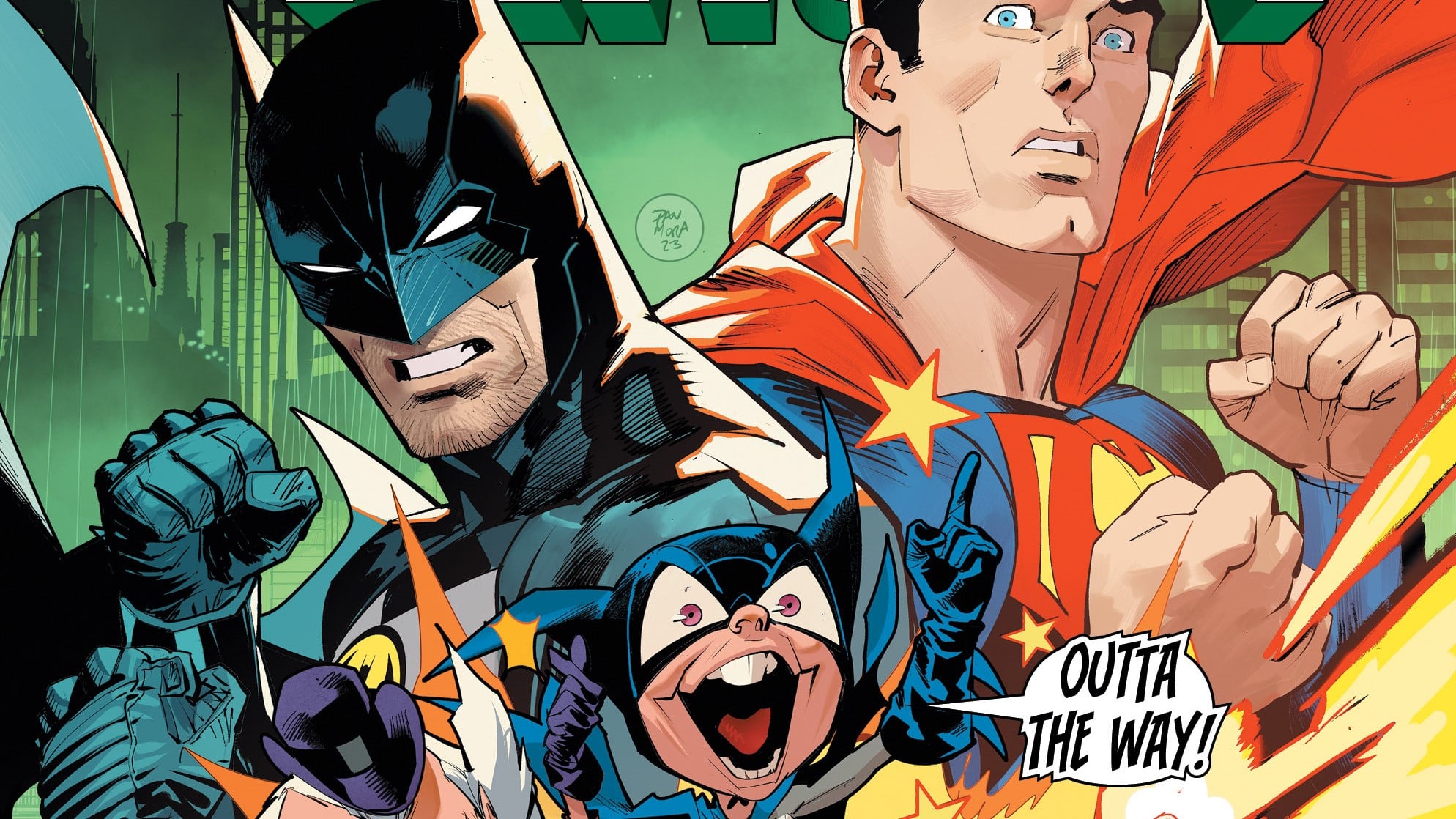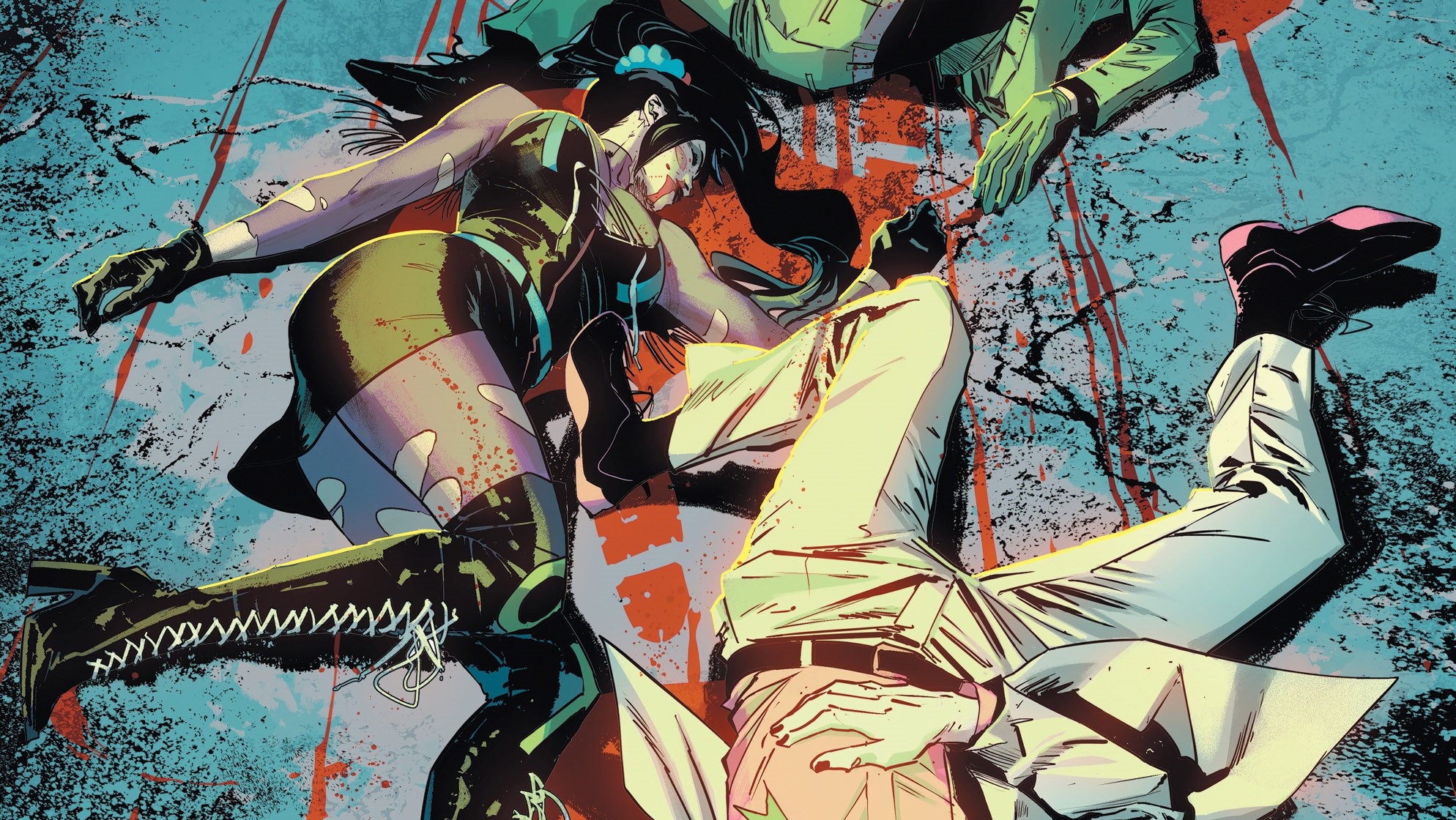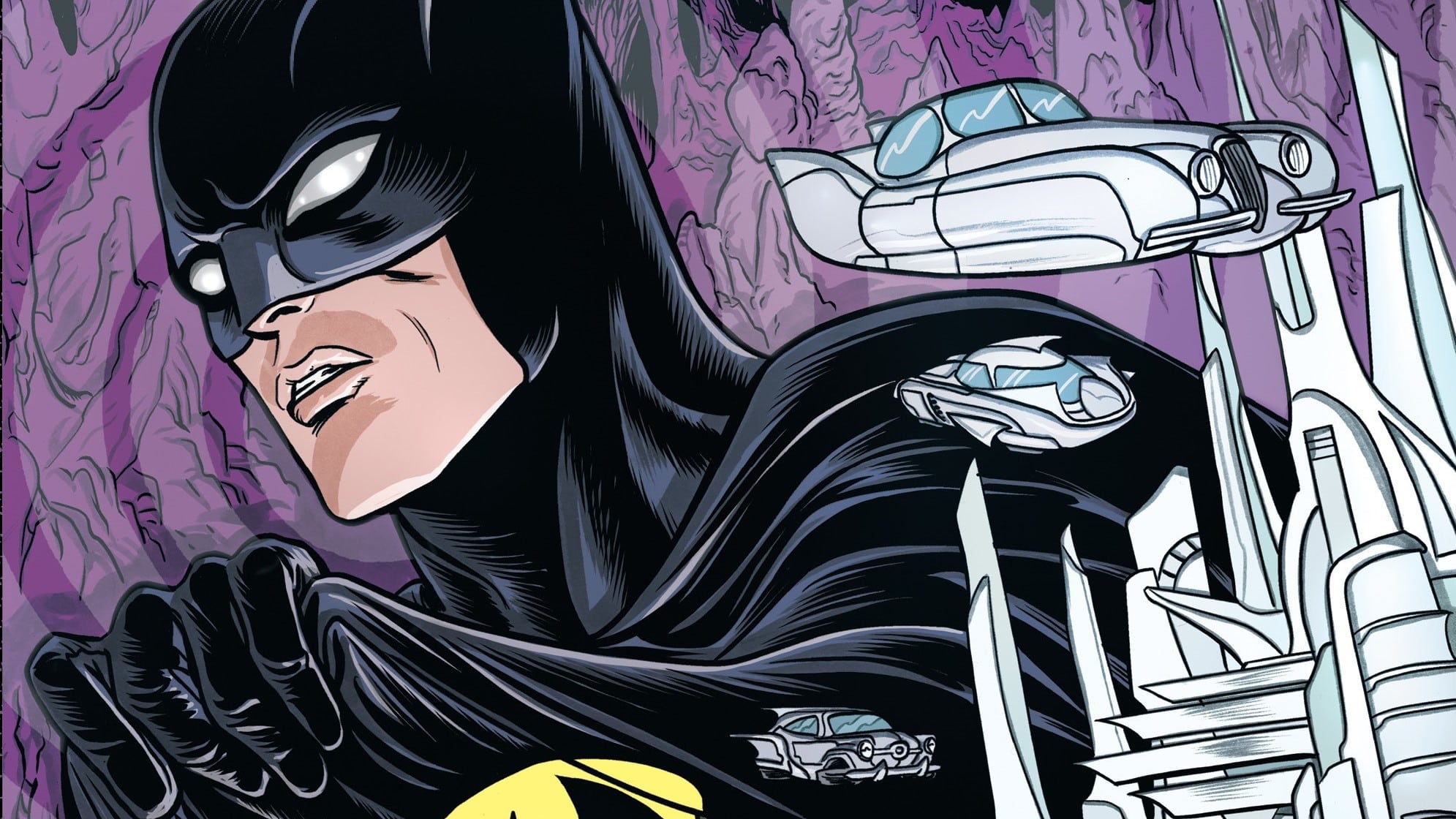Kid Thunder has been freed from the Joker and the Key, but the torture has caused him to begin to lose his grip on his rage. Now Superman must make a fateful decision in Batman/Superman: World’s Finest #11, written by Mark Waid, drawn by Dan Mora, colored by Tamra Bonvillain and lettered by Steve Wands.
Long having since retired from supervillainy, Bane lives the life of a luchador. But the return of the super steroid Venom has brought him out for one final mission. Batman: One Bad Day: Bane is written by Joshua Williamson, drawn by Howard Porter, colored by Tomeu Morey and lettered by Steve Wands.
One of the three rookies quits the force, one settles into their new position and the third breaks in GCPD: The Blue Wall #4, written by John Ridley; drawn by Stefano Raffaele, colored by Brad Anderson and lettered by Ariana Maher.
Will Nevin: Got a challenge for you, Matt. I know we’re not reading it, but try to explain the concept — and what’s going on — in Lazarus Planet in under … oh, let’s say a thousand words.
Matt Lazorwitz: OK, so here we go:
There is a war between beings from Chinese folklore. The Devil Nezha is at war with his foster Son, King Fire Bull. Their fight has led to KFB (abbreviating to count that as one word, and this parenthetical doesn’t count either) triggering an explosion on Lazarus Island, the seat of power from which all other Lazarus Pits draw. This has led to a worldwide storm of magical Lazarus Resin that is altering the powers of existing metahumans, triggering the manifestation of others and causing general natural disasters. Now the heroes, many of whom were taken out by Nezha to power himself up to face KFB, have to deal with these catastrophes to stop KFB. Oh, and Monkey Prince, Gene Luen Yang’s very fun new DC character, is involved as his dad, Sun Wukong the Monkey King, is heavily involved in the myths of Nezha and KFB.
Will: Under 150. I’m impressed.
World’s Finest

Matt: Reading this issue made me think about mentoring. Batman is often called out, both seriously and jokingly, as a bad dad and a lousy mentor for how distant he is emotionally. But here we see Superman trying to be a mentor, and while Kid Thunder does the right thing in the end, this shows that having a sidekick isn’t easy.
I also think there’s a nature vs. nurture thing as well. Would things have been harder for Batman to take sidekicks later if Jason Todd had been the first Robin (which he was not, no matter what White Knight says)? Was Gog drawn to Kid Thunder because there is essentially something broken there? Or would Batman have been a better mentor for someone haunted like he was, because he understands that better than Superman does?
Will: There is something here too about the burden of superpowers, the separation from family and the strain the two can put on a character — which is of course an idea Waid has tackled before. And another idea of Waid’s was the creation of Magog — was this some version of his origin story?
Matt: This was a different version than we saw before when he popped up in Justice Society of America, but Waid wasn’t involved in that version: It was Alex Ross working with Geoff Johns. They take the same Gog design in this story that was used in that one, and we can always go with multiverse shenanigans to explain that.
Will: The more Geoff Johns we can handwave away, the better.
Matt: No argument here.
Does it feel like a copout that Superman decides to let Kid Thunder keep his powers, he loses it again, Superman gets him to step back from the abyss of killing the Key juuuuuust barely, and then he’s shuffled off somewhere else in the multiverse without Superman having to deal with the ramifications? Or does the vibe that some version of Kingdom Come is inevitable mean that Superman will have to deal with the ramifications when he returns as Magog?
Will: Certainly would do a lot to add to the explanation of Superman’s exile in Kingdom Come — carrying both guilt over how he couldn’t give Kid Thunder the help he needed and shame stemming from what he became. There’s more noise and cameos in this story than I’d like, but at its core, I think it’s a good one. And I’m still jealous that the Super guys get it every other month.
Matt: Oh, you mean the Z-list Legion of Doom that The Key assembles? Yeah, three of those guys were so obscure I had to look them up, and as I figured they were hugely minor Bronze Age Superman foes. That’s Mark Waid showing off. Not that I wouldn’t do the same thing if I had the opportunity.
Will: You give me a Batman book, and it will be nothing but Scarecrow carrying out revenge for petty grievances in academia. I get it.
Bane

Matt: We’ve been talking about how these one-shots rank against each other from the beginning, and I feel like this one was solidly middle of the pack.
Will: Incredibly not terrible! Decent fanfic! A sequel to “Venom” and “Knightfall” that no one asked for! I dunno, Matt, pick your descriptor for this, but ultimately, it felt 100% unnecessary.
Matt: Yeah, I sat back after this one and just felt like … we’ve had stories of Bane dealing with the fallout of “Knightfall” for years now. While the idea that the day he broke the Bat was both the best and worst day of his life is novel, I don’t feel like this told us anything new about the character. Especially when Gail Simone spent 36 issues of Secret Six elegantly dealing with Bane seeking redemption, almost finding it and then sort of coming to the conclusion he was irredeemable. I don’t feel like we got enough of why Bane was at the point he was at here. We saw why Penguin was at rock bottom in his one-shot. Here, it just felt like Williamson was playing into the luchador look and wanted to have Bane wrassle.
Will: That part of the story felt incredibly inauthentic. Like, first, how old is Bane when he’s retired to this life of pro wrasslin’, and second, well … why? And Batman’s involvement in this story was all over the damn place. Bane’s relating their team-up to destroy Venom and his supposed great death … only for him to pop up again in the end? Was Batman infected with Venom in that last fight and Bane covered for what he presumed was a once-again addicted Bats? That was a strange but seemingly important beat that didn’t get enough attention.
Matt: That bugged me. I actually wondered if Bruce was even really there, or if that, like the visions of his mother, was all in Bane’s head. It didn’t seem that way, since Bruce seemed less transparent, but it would explain why the infection/addiction to venom wasn’t mentioned. That was my only way of reconciling the two things.
Will: Maybe that works? But the idea of Bruce telling him to find another reason to live so that they can have their final fight certainly suggested to me that he was an actual living character. And the “secret” he’s supposedly keeping from the family is I guess getting hooked on Venom again? Again, that whole bit was a mess and a half.
Matt: Or the fact that he’s working with Bane? Something he did during Gotham Knights when Bane was trying to redeem himself, so that doesn’t seem right either. I know these aren’t in continuity, and frankly pre-Flashpoint stuff is dubiously canon as it is at this point, but I just felt like this was a case of, “Repeat to yourself it’s just a show, you should really just relax,” when it comes to how it works in relation to anything that wasn’t the two stories you mentioned at the top.
Will: Let’s focus on those. You said it felt like a retread of post-”Knightfall” themes. What did you think about the good Dr. Porter of “Venom” fame returning from the dead?
Matt: Honestly? I’m surprised it took 25+ years for someone to do it. Although again, he seemed off. He talks about Cissy’s death like it wasn’t completely his doing. Bringing him back feels like something I wanted more of if you were going to do it. Make the whole issue a metaphoric chess game between him and Bane.
Will: And Batman needed to be there to serve as pushback, since getting “Venom” from Porter’s perspective isn’t exactly all a reader needs for context. Really, this whole book should have been the Batman/Bane team-up, and we can drop the weird wrestling stuff altogether.
Blue Wall

Matt: OK, so I did not see the end of this issue coming. At all. And I’m still trying to figure out how I feel about it.
Will: Excessively unearned grimdark was my initial reaction.
Matt: Unearned is exactly it. Do I think excessive workplace harassment could lead to someone snapping and becoming violent? Sure. But here’s the thing: We haven’t gotten any impression Ortega was predisposed to violent outbursts. And even if he was, and logically attacked Montoya as both the top-down cause of his harassment and another person of Latinx ancestry that ignored his pleas for help, the fact that he killed her brother and his fiancee as opposed to Montoya felt like a cheap emotional gut punch.
Will: The invite to a fake, racist “party” could be enough to make anyone crack, especially with his father there to see his humiliation. But if we’re dealing in the world of comic books, the best route from that sort of thing is a Punisher-type anti-hero targeting bad cops directly. Like, this guy should still have some moral grounding that should include not targeting civilians. Ortega could eventually get to a place where he’s murdering innocents and chalking it up to acceptable behavior in wartime, but he can’t be there this early in the story.
Matt: Yes! He goes right from protagonist to villain in two pages. If he killed his slimy racist partner, I might not be rooting for him, but I’m sure I’d feel a visceral pleasure seeing that guy go down. But Benny and his fiancee are innocents in this whole thing. I guess you can argue that he was attacked in front of his father, so he feels like family are fair game, since his partner specifically told him to bring his family, but you can’t come back from this. I wonder if the quick change was a victim of this series only having six issues to tell a story that requires as much nuance as this one. Something had to give.
Will: That’s been a consistent theme with this series, hasn’t it? Too rushed, too compressed, too much. It feels like these rookies should still be in the idyllic, optimistic portion of their character arcs.
Matt: I will take compressed over decompressed any day of the week, but this series has felt like it needed more room from at least issue 2, if not the very beginning.
Speaking of things having to give, I hope we don’t get short shrift handed to Montoya’s alcoholism and possible/probable relapse. We get hints she’s struggling here, and I imagine this will be a thing that can push her right over the edge.
Will: Her alcoholism has been something Ridley’s brought up a few times, so it won’t be something popping in randomly in the last two issues … but it does seem like one more storytelling injustice. Why this wasn’t a maxi is beyond me.
Matt: I lay that at the feet of corporate/editorial. These police/crime books in a superhero world are critical darlings that rarely sell well, so I’m sure there was some corporate back patting for letting the writer of color write something about policing, as long as it wasn’t something that was too long and would take up too much money. But maybe I’m being cynical.
Will: You’re supposed to be the hopeful, optimistic one, Matt. Stop taking my bits.
Bat-miscellany
- This week’s BatChat podcast is three team-ups between different franchises and Batman ‘66.
- “I’ll show you, Reviewer No. 2!”

